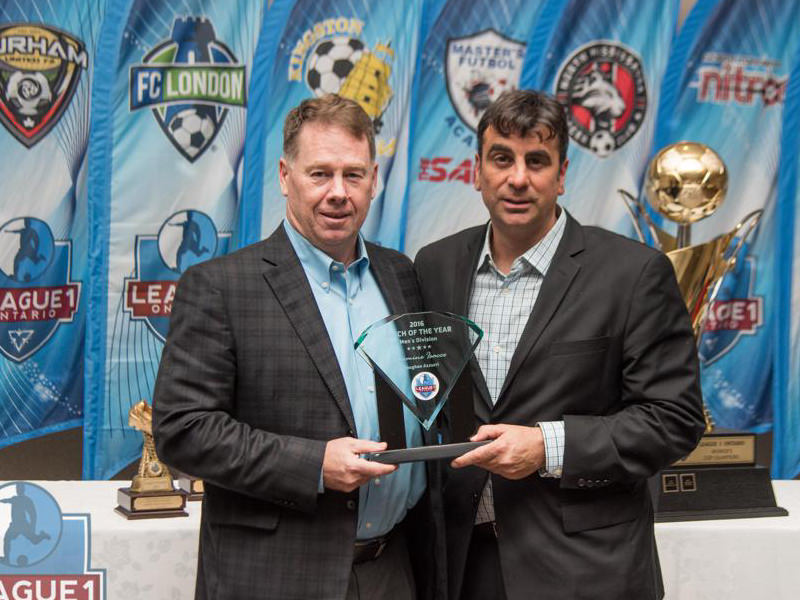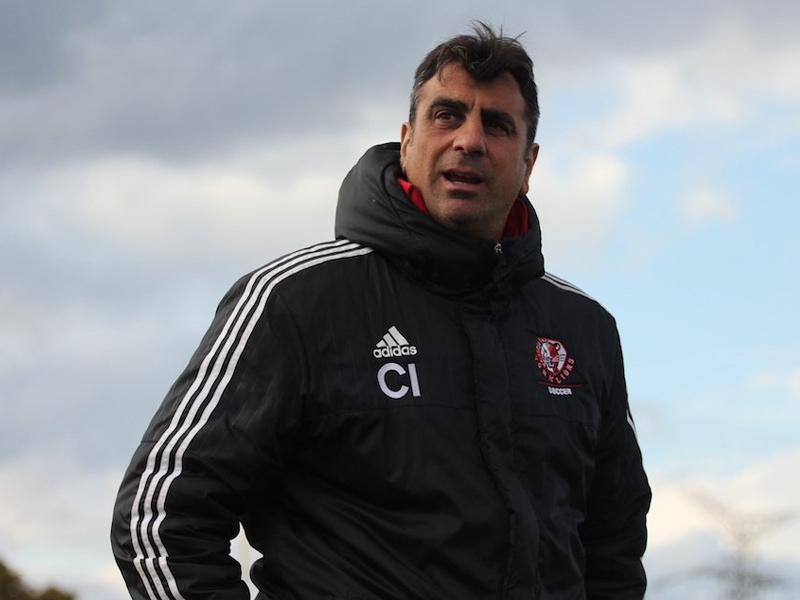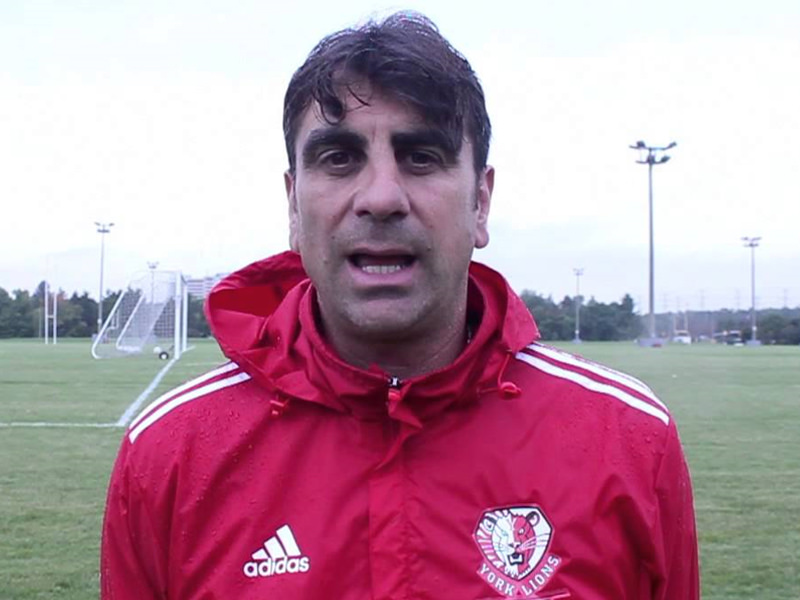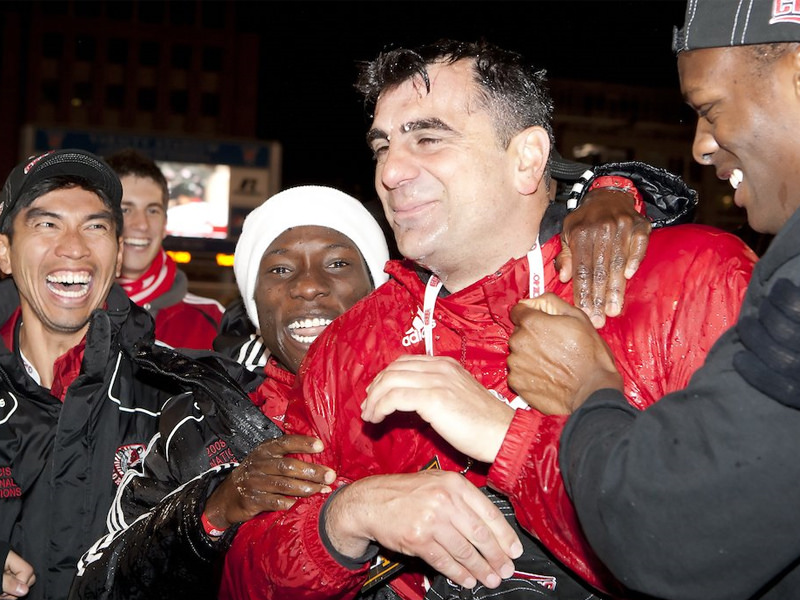|
By Giancarlo Aulino In this episode of Beyond The Game, VIBE Correspondent Giancarlo Aulino interviews Carmine Isacco - master coach of York University’s (YorkU) soccer program, overseeing both the men and women’s teams. Carmine became YorkU’s head coach 11 years ago, winning multiple Ontario University Athletics (OUA) championships and National championships. This successful program has provided players such as Mark-Anthony Kaye and Michael Cox, with an opportunity to showcase their skills and garner the interest of teams in the United Soccer League (USL) and Major League Soccer (MLS). During the interview, Carmine talks about his coaching job at YorkU, players choosing to stay in the OUA vs going to the National Collegiate Athletic Association (NCAA), the impact he believes the Canadian Premier League will have on University-level soccer, and the legacy he hopes to leave for YorkU's soccer program. Giancarlo: Carmine, you’ve been involved with York’s soccer program for the past ten years. Can you talk to us a little bit about how you got the head coaching position at York and what you have found to be the most rewarding part of being York’s head coach? Carmine: I was at University of Toronto (UofT) two years prior to making my transition to Toronto FC. But I enjoyed the CIS and the U Sports game so much, so I wanted to stay involved. I actually had a conversation with Paul James, the master coach at the time, and we decided that I would take over the men’s program and the rest is history. As far as what I enjoy the most, it’s all the preparation, the all year-round programming, and obviously the hundreds of friendships with players and coaches. Just the camaraderie around the group, and building a culture and a family that their a huge part of and they don’t even know it, that’s what I enjoy the most. Giancarlo: Being a coach at the University level, you’re also relied on for recruiting players to York’s soccer program. Can you describe to the listeners what the recruiting process is like and what are some of the qualities are that you look for in a player? Carmine: To be honest when I first started at the University of Toronto, there was no recruiting process. I don’t think coaches got involved that much. When I started recruiting players at provincial-level and national-level teams, it was a lot easier. Now I think schools like York have raised the bar, and now the recruiting process is as complex as it is in the NCAA. We go out to many showcase tournaments, we have liaisons with clubs, so my staff or I are out ten months out of the year for sure, recruiting and recruiting players two years away from university already. It’s a very long and tough process. What we look for is obviously technical ability. That’s very important for us, in terms of the style of play we want. Athleticism is also very important for us, but the major thing is their character, competitiveness, and their will. Not many people know this, but the OUA is a very competitive and high-paced league, and if you compare it to other leagues whether it be League-1, or the semi-pro league around here, it’s still a different level of commitment and it’s still a different level of competitiveness for sure. Giancarlo: Now do you see more players choosing to stay in the OUA or are players still shifting their focus to NCAA? Carmine: Well, with the nature of the game and the draft system to get in to the MLS, a lot of players are looking NCAA bound. But there’s other pathways provided as well. Mark-Anthony Kaye spent two-and-a-half years with us at York, so there was a pathway for him to become a pro. Michael Cox is now at Orlando City (during time of interview, now plays for Nashville SC), Charlie Trafford is playing professionally in Scotland, Nana Attakora is playing professionally in the NASL, Jamaal Smith played professionally in Sweden and Kazakhstan and had a good career. There’s a pathway for sure. From York or from an OUA team, there’s a pathway but it’s a long struggle, and the NCAA has become a draft system. The opportunities in a draft system might be better, and easier for a Canadian to get involved in. Although, we’ve had 4-5-6 kids on the full national team, it still takes them a lot of earning and proving to get there, even to the professional level, rather than a player not better or some of our guys that went to York. They get kind of a pass into the MLS because of their draft system, and they get a pass into the national program because of the exposure of the NCAA. Let’s hope that the CPL, the new Canadian pro-league, comes to fruition and has a good agreement with U-Sports so we can develop and get our players in a pro-environment quicker. For the rest of this exclusive interview, click here.
|
Recent Posts
Categories
All
Archives
February 2022
|
|
GET THE APP!
Listen to VIBE 105 anywhere you go!
|
OUR STATION
|
TUNE IN RADIO
|
STAY CONNECTED
|
Copyright © 2021 Canadian Centre for Civic Media and Arts Development Inc. Except where otherwise noted, presentation of content on this site is protected by copyright law and redistribution without consent or written permission of the sponsor is strictly prohibited.






 RSS Feed
RSS Feed


